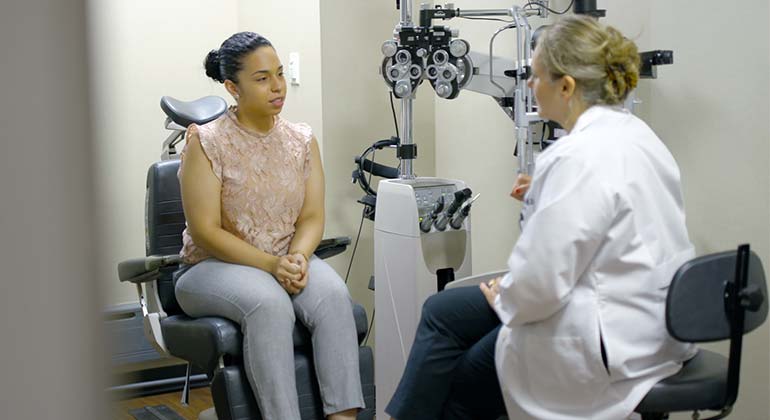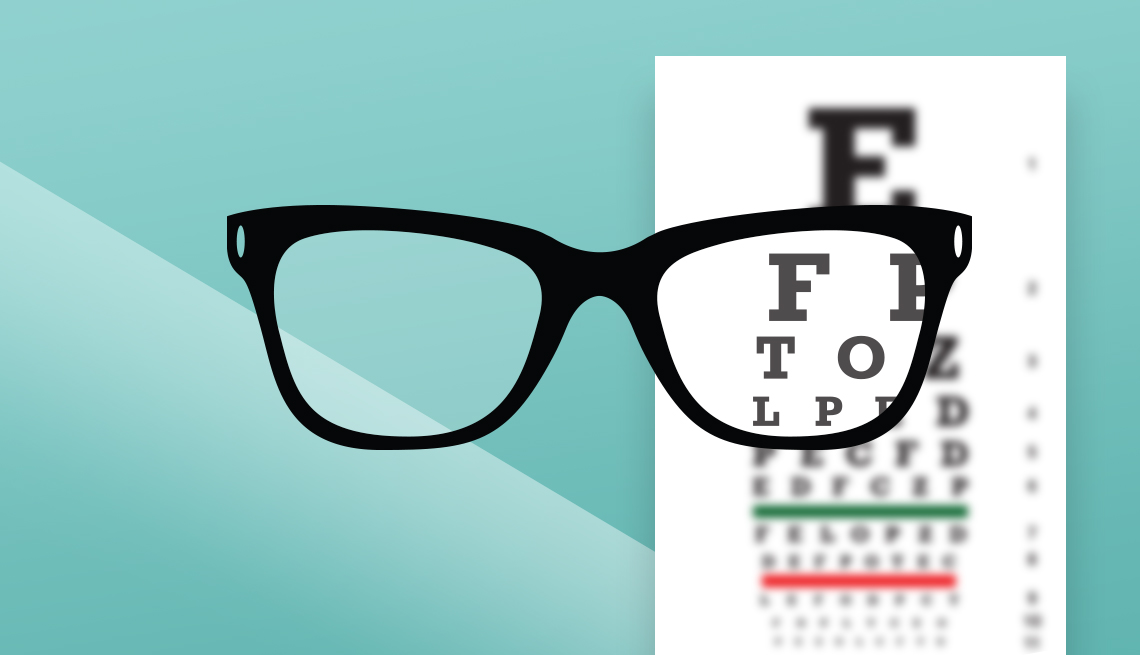Is Refractive Surgery Right for You? Aspects to Take Into Consideration for Better Eyecare
In the realm of eye care, the decision to go through refractive surgical procedure is a significant one that requires thoughtful factor to consider. As individuals look for quality and freedom from the constraints of rehabilitative lenses, numerous aspects enter play when figuring out the suitability of such a treatment. From the ins and outs of one's eye wellness to the details of day-to-day behaviors and personal expectations, each aspect holds relevance in the broader landscape of refractive surgical treatment candidateship. By reviewing these essential components with care and precision, a clearer course towards notified decision-making arises.
Eye Health Evaluation
When taking into consideration refractive surgical procedure, a comprehensive eye wellness evaluation is essential to evaluate the suitability of the procedure for each and every individual. neurologist andalusia. This analysis entails a collection of tests and examinations performed by an eye treatment professional to establish the total health of the eyes, the presence of any kind of underlying problems, and the security of the refractive mistake
Throughout the assessment, numerous factors are taken into account, such as the client's case history, current eye prescription, corneal density, student dimension, and tear movie quality. These assessments assist to identify any type of contraindications to refractive surgery, such as corneal abnormalities, cataracts, or without treatment eye infections. Furthermore, the evaluation aids to take care of client expectations pertaining to the prospective results of the surgical treatment based upon their special eye characteristics.
Eventually, the eye health evaluation is vital in making certain the safety and security and efficiency of refractive surgery, as it supplies useful understandings right into the person's eye health condition and assists establish the most appropriate therapy alternatives for achieving optimum visual outcomes. (eye doctors in andalusia)
Lifestyle Analysis
A complete lifestyle assessment is essential in identifying the viability of refractive surgical treatment for an individual's aesthetic correction demands. Way of living elements such as line of work, leisure activities, and everyday activities play an important role in the decision-making process relating to refractive surgical treatment. For instance, individuals with careers that involve a high level of physical activity or direct exposure to ecological elements might have different visual needs compared to those with less active desk tasks. Understanding exactly how a person's way of living may affect their vision post-surgery is important for handling expectations and guaranteeing optimal results.
In addition, way of living routines such as sports involvement, exterior activities, or even skin care regimens can influence the healing procedure and overall success of refractive surgery. By conducting a thorough lifestyle evaluation, eye treatment professionals can tailor their referrals and treatment plans to satisfy the one-of-a-kind needs of each client, inevitably leading to enhanced visual end results and complete satisfaction.
Expectation Placement

Setting realistic assumptions includes comprehensive pre-operative discussions between the ophthalmologist and the client. The doctor needs to transparently communicate the possible threats, advantages, and restrictions of the treatment (cardiologist andalusia). Clients require to understand that while numerous individuals attain 20/20 vision or much better adhering to refractive surgery, some might still require glasses for published here sure activities like analysis or driving at evening. Taking care of these assumptions helps stop frustration and dissatisfaction post-surgery, causing a more favorable total experience for the individual.
Risk Evaluation

Elements that might enhance the danger of issues consist of age, particular medical conditions like autoimmune illness, unstable vision prescription, thin corneas, and impractical patient expectations. In addition, selecting a skilled and knowledgeable specialist, following pre and post-operative care instructions vigilantly, and revealing any pertinent case history can useful content help mitigate dangers.
To lessen the probability of issues, ophthalmologists carry out detailed pre-operative evaluations to determine any type of contraindications to surgical treatment. They also talk about the prospective dangers and advantages with patients during the appointment procedure. By taking part in open communication and shared decision-making, both the eye doctor and the patient can function with each other to establish if refractive surgical procedure is the best selection based upon individual danger profiles and desired outcomes.
Assessment Importance
Considering the vital role of notified decision-making in examining threats and prospective problems in refractive surgical procedure, the appointment process holds significant relevance in directing patients in the direction of optimal results. Throughout the appointment, the eye doctor assesses the patient's eye wellness, refractive errors, and overall suitability for surgical treatment. This first analysis is critical in determining one of the most appropriate procedure for each person, taking right into account variables such as corneal thickness, pupil dimension, and existing eye problems.
In addition, the examination functions as an opportunity for clients to review their assumptions, problems, and any kind of questions they might have concerning the surgery. Clear communication between the specialist and the individual is important to make certain sensible assumptions and a thorough understanding see this website of the prospective threats and advantages entailed.
Furthermore, the consultation enables the doctor to clarify the various medical alternatives offered, their corresponding end results, and the post-operative treatment needed. This extensive discussion empowers individuals to make well-informed choices regarding their eye treatment, causing far better contentment and end results post-surgery.
Final Thought
To conclude, individuals considering refractive surgery ought to undergo a detailed eye health and wellness evaluation, analyze their lifestyle practices, straighten their expectations with prospective results, analyze the involved risks, and focus on examinations with eye care professionals. These factors play a critical function in establishing the viability of refractive surgery for each individual, guaranteeing ideal end results and fulfillment with the procedure.
People considering refractive surgery often have high expectations pertaining to the end results, anticipating excellent vision without the need for glasses or get in touch with lenses. While refractive surgical treatment can substantially enhance vision and minimize dependency on aesthetic help, it is vital for clients to comprehend that results may vary based on private elements such as the level of refractive mistake, corneal thickness, and total eye wellness.
By engaging in open communication and shared decision-making, both the individual and the ophthalmologist can work together to figure out if refractive surgical treatment is the best choice based on private threat accounts and preferred results.
Thinking about the critical role of educated decision-making in assessing threats and prospective issues in refractive surgical procedure, the appointment procedure holds substantial value in guiding people towards optimal outcomes. Throughout the consultation, the ophthalmologist examines the individual's eye health and wellness, refractive mistakes, and general suitability for surgical procedure.